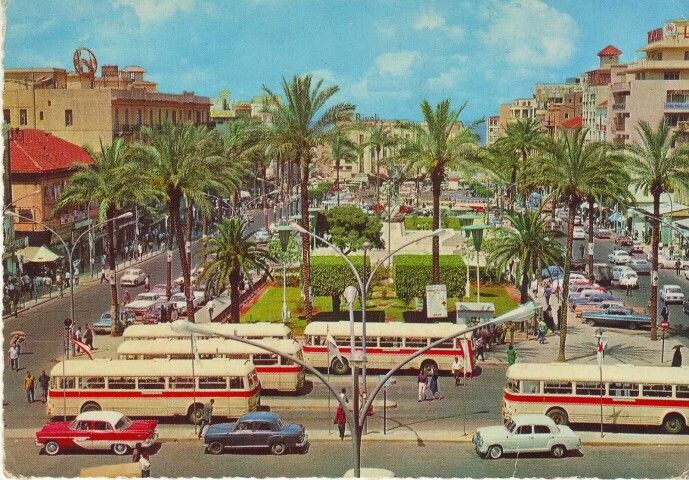
We have all heard the story of Lebanon’s struggle for independence in history classes at school. What if we shift our perspective and explore the untold side of Lebanon’s history, one we could authentically hear from only our parents or grandparents; the Lebanon that once was called “Switzerland of the Middle East.”
It is said that between 1943 and 1967 the Land of Cedars was in its golden era. Many events marked this time of innovation and achievement. Thus, liberal philosophies and liberal economic approaches formed a solid foundation for Lebanon’s prosperity at the time.
In fact, Lebanon’s wealth primarily lay in its human capital, cultivated through a liberal economic regime that contrasted with the prevalent socialism in the Arab world. Lebanon offered a flexible exchange rate, freedom for capital movement, and the infamous Law of Bank Secrecy. These factors drew the attention of investors from Egypt, Syria, and Iraq, as well as capital from oil-rich nations with undeveloped financial systems.
Lebanon outshone most Arab countries not only in terms of financial and economic development but also in the overall “westernization.” The French mandate nursed that development, starting with rail transport all over the country and ending with the first drafts of the Lebanese constitution, inspired by the 3rd Republic French constitution itself.
However, Lebanon independently sought development and uniqueness in the Fertile Crescent. Technological innovations, aviation with MEA (Middle East Airlines), Beirut Port, or “Compagnie de Gestion et d'Exploitation du Port de Beyrouth,” and its importance in the region, are just a few of the achievements that made Lebanon a “Switzerland.” Nonetheless, some achievements are worth elaborating on, among which: Lebanon is one of the first countries to introduce theOfficial Higher Education program in the region; , it the first country in the Arab world to grant women the right to vote; and it is the first to introduce the first legal gambling establishment in the Arab World, the renowned “Casino du Liban.”
To begin with, education in Lebanon predates its golden era. The American University of Beirut (AUB) (1866) and Saint Joseph University (USJ) (1875) were both established before the golden age and show Lebanon's dedication to providing quality education and laying a foundation for knowledge and progress. Alongside these prestigious institutions, the idea of founding the Lebanese University emerged in 1948 during a speech by former Foreign Minister Hamid Frangieh at a UNESCO conference. The university's establishment in 1951, following student movements and popular protests, marked a significant milestone in obtaining education rights.
Furthermore, Lebanon has been a pioneer in the advancement of women's rights, particularly in the political sphere, setting remarkable milestones that distinguish it within the Middle East. The pivotal moment came in 1952, when Lebanon became the first country in the Arab world to grant women the right to vote. This groundbreaking decision was a result of the collective efforts of women's rights activists who, in response to the electoral statute of 1950 that denied them political rights, organized protests and formed unions. The establishment of the Lebanese Council of Women in 1952 united Muslim and Christian women, advocating for equal political rights.
Finally, “Casino du Liban” stands as a testament to Lebanon’s bravery in introducing unprecedented entertainment in the region since 1959. Apart from offering an exceptional gaming experience in the heart of the Middle East, it hosted some of the most significant European and American shows in its “Salle des Ambassadeurs,” making it a widely acclaimed stage. It hosted the Miss Europe pageant between 1960 and 1965 and set the stage for crowning Miss Universe in 1971. Despite having to go through the difficulties of a tormented history, it remains an integral part of Lebanon’s cultural fabric, attracting all kinds of entertainers.
Even though I have only just begun to scratch the tip of the iceberg of Lebanon's immensely rich history in the 20th century, we can already see how Lebanon was “Switzerland of the Middle East”. Despite Lebanon’s painful history, marked by wars, recent economic crises, and the port explosion, the national resilience of the Lebanese shines through. Having qualities like compassion, love, and most importantly, hope, Lebanon will rise from all struggles to reclaim its status and become once again “Switzerland of the Middle East.” It may take time, but history is the witness of the Lebanese unbreakable spirit and undying love for their country, whether it is Switzerland or just “وطن” (homeland).